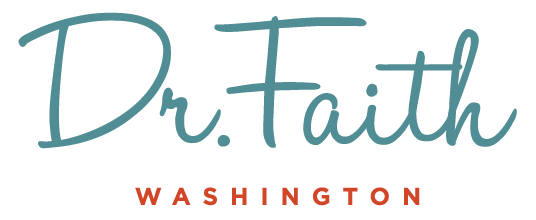Within the matter of a couple years, artificial intelligence (AI) has become an ubiquitous part of many of our lives. This rapidly growing and evolving technology can help us in many ways — whether it be brainstorming new ideas, calculating results, or simply editing a photo.
As I dove into the applications of AI technology, I have discovered a bounty of uses to make my day to day more efficient. In fact, I have also uncovered ways this technology can champion health equity and women’s mental health, thus, leading to higher levels of wellness.
In today’s post, let’s explore different ways AI can improve your bandwidth, creating a higher level of well-being and bandwidth for the other, more important aspects of your life.
Using AI Technology to Be More Efficient
AI technology is going to be paramount in the improvement of health equity and women’s mental health, as the tools it provides are much more accessible and preventative than the models of the past.
Let’s uncover several different ways AI can make us more efficient and improve our wellness:
Smart Watches and Health Tracking
While AI certainly will not replace the need for going to your healthcare provider’s office, it can help you track many health indicators wherever you are. Simply by wearing one of the smartwatches on the market, you can track your heart rate, sleeping patterns, exercise habits, and so much more.
By compiling this data, your smartwatch and health tracking systems can create recommendations for optimized healthy habits based on your personal health parameters (i.e. weight, height, health history).
Just several years ago, this information would be reserved to people with great healthcare coverage and the time to make frequent doctor’s visits for all kinds of tests. Now, you can buy a smartwatch for less than $100, and have all sorts of essential health data to make more informed, effective decisions about your own health right at your fingertips.
Productivity Tools
There are countless AI tools that are geared toward making you more productive, thus enabling you to increase your bandwidth and save time for your own well-being.
You may have previously spent countless hours gathering and organizing data or completing administrative tasks that AI can now do for you in a matter of seconds. Chat GPT is a great tool for helping yourself draft emails, sort data, or even conceptualizing ideas.
When using these tools, it’s important to create boundaries. Think of them as time savers, rather than tools to squeeze the most productivity out of yourself as possible. Your goal should be to carve out more time for things you enjoy, not to become even more of a workhorse!
Mental Health Apps
When trying to improve your mental health or overcome internal obstacles, you might think your only option is to talk to a therapist in person. While this is an amazing avenue toward wellness, it isn’t necessarily a realistic option for everyone, especially those juggling their work, family, and other personal commitments or those who don’t live near a therapist who fits their needs.
More mental health apps are using AI to enhance their offerings. For instance, Headspace is a popular app that uses AI algorithms to give you customized recommendations to improve your mental health, such as guided meditations, stress reduction strategies, mindfulness tips, and sleeping hacks.
Other AI-powered mental health apps are more geared toward treatment on demand, which for those struggling to secure a traditional therapy appointment in a timely manner might find helpful.
Meru Health offers continuous therapist support and plans to meet your goals. Another app worth checking out is Woebot Health, which is aimed to remove healthcare access barriers for users, lower costs, and improve results.
When exploring AI for mental health, remember that you may need to use it in tandem with more traditional approaches to mental health care. Like any tool or treatment, there really isn’t a one-size-fits-all solution, and you may need to do some research for yourself.
As AI continues to evolve, we are likely to see even more ways it can help make us more efficient in our everyday lives. My goal is to continue to unpack the intersection of health equity, women’s mental health, and technology, such as AI.
Want to dive deeper into these kinds of topics with me?
Let’s get connected here.

